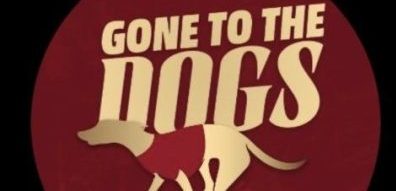1986 A reporter from Greyhound Owner was given an unusual response from Dunmore boss Sam Young when phoning with an enquiry. “You will have to call me back later. I have been locked in an office and I have to get the police and tell them someone tried to steal the takings.”
1970 A brindle sprinter is backed to even money favourite on his debut and duly lands a Shawfield 300 open. His name is Bright Lad. He will go on to be one of the leading sires of his generation.
1958 Catford have a rare chance of having six local runners in the Gold Collar Final when their sextet are evenly drawn in the two semis. Things don’t go quite to plan when all six fail to qualify.
1986 Following disputes between members of the British Breeders Forum, Bob Gilling takes over responsibility for entries for the Produce Stakes. Among Gilling’s pledges is that the event will lose its ‘late entry’ option. The £200 backdoor to the competition for dogs not entered at the earlier stages was exploited by the first two winners of the event, Glatton Grange and Fearless Champ.
1965 Dermott Hughes of Bengalstown wins his second Produce Stakes in three years when 7-1 shot Kileden Guest wins impressively in 29.76 for Clonmel’s 525 yards. Two years earlier Hughes won the stake with Kileden General.
1986 Reading trainer Rory Smyth has his licence suspended for six months after being caught with a syringe in the Wimbledon paddock. He claims he was using the device to administer olive oil to his greyhound which had a sore throat.
1966 Clomoney Grand completes the Dublin spring double when landing the Easter Cup Final at Shelbourne Park in 29.50 for 525 yards. The tiny blue had previously set a new Harolds Cross record of 29.03 in the final of the Callanan Cup.
1947 Young greyhound vet ‘Mr Ridley’ reveals he is experimenting on a new treatment for dogs with toe ligament injuries. Instead of the standard toe amputation procedure, Ridley has been ‘wiring’ toes together and achieving some success.
1986 The Romford Super Jackpot record is smashed when a single winning ticket pays out £22,607-43 – which index linked works out to around £69K.
1973 Catsrock Daisy is voted Ireland’s Greyhound of the Year for 1972 following her victories in the Easter Cup and Irish Derby for trainer Gem McKenna.
1947 Romford enhance their reputation for paying good prize money for staying opens when increasing the winner’s prize of the Stayers Plate is increased to £250 (£10,550 in modern terms). The track’s top event, the Essex Vase, pays £500 to the winner, the same prize as the St Leger.
2011 There are only 149 entries for the William Hill Derby, 66 fewer than the previous year. When they go to traps for the first round, Taylors Sky is available at 100-1 with the sponsors.
1993 Matt O’Donnell is forced to withdraw his four runners from the Scottish Derby. The quartet have trialled at Shawfield, but it is only when their form is updated, that they are all found to have weight variations from their Irish form and there is insufficient time to retrial them.
1966 George Webster, a trainer at Rayleigh, loses his licence over an incident that occurred 16 years earlier. Webster had trained for four years at Rayleigh but needed an NGRC licence when the track switched from flapping to racing under rules. Although he was initially licenced, the former Royal Navy and merchant seaman was refused a licence when it was due for renewal. The original conviction was for larceny.
1997 Former stipendiary steward Dan McCormick laid into his former colleagues at the Racing Managers Conference at Oxford Stadium. The hugely experienced McCormick, now running Oxford was unhappy. Greyhound Star reports on the discussion which relates to Irish transfer of ownership fees: “. . .this is the £10 charged to change the ownership of an Irish bred greyhound with the Irish authorities during the changing of its registration with the NGRC. The Club will not sanction a transfer until the transfer is effected. ‘It is a stupid rule’ says Big Dan, ‘and I have been saying so for years. The vast majority of the dogs that come over are never going back to Ireland. Owners in this country have been throwing money at the ICC for years.’ A clearly flustered senior steward (Bille Cooke) replied ‘As I am sure you know Dan, we have been looking at this situation for some time. . .’ ‘I know you have’ replied McCormick, all guns blazing, ‘and there has been bugger all done about it. I wish I knew how much it was costing.’ ‘We know it is around £100,000 per year’ replied the senior steward.”
1928 We have previously mentioned the opening night at Wimbledon, but here is the story of ‘the failed opening.’ The original opening ceremony was planned for the Wednesday evening. A newspaper report stated: “The most elaborate preparations had been made for the track’s christening. On the Monday before the planned opening, newspapermen were entertained to lunch by the directors and afterwards afterwards watched actress Tallulah Bankhead, then at the height of her West End fame, break a bottle of champagne over the hare and christen it “Gracie”. Meanwhile, there remained much clearing up to be done before the track could be opened. The turnstiles had to be erected, tractors, tools and other builders’ equipment removed. The special shift of workers had been organised for the Tuesday night to do these chores, but throughout the afternoon torrential rain fell. It kept on falling throughout the night, and although the workmen carried on, their efforts were badly impeded. By Wednesday morning they were still hard at it, though the downpour had made a bog of the track and the ground outside. Finally, heavy rain began again and a hastily convened directors meeting. it was decided that the opening would have to be put back until the following Saturday. But how to let the anticipated crowd of 40,000 Londoners know at this late hour? The stadium’s press representative Fred Stowe answered that problem. Commandeering all available telephones, he and his assistants contacted the evening newspapers and press agencies, and also had all advertisement copy changed. Thousands of handbills were printed for distribution at railway stations, bus and tram stops. This prompt piece of organisation saved enthusiasts from a wasted journey and the work went ahead for Saturday’s opening. This was a grand affair with the band of the Welsh Guards parading the track with Gracie the hare leading them at a sedate 3mph.”
1947 Perry Barr introduce a new ‘trackless’ hare called the McWhirter.
1958 The BBC feature a greyhound in their programme Educated Evans. The comedy starring Charlie Chester is about a greyhound called Fruit Bowl who was sold to Evans by two dodgy characters in a pub. The star was former Charlton grader Good Ann.
1968 The final of the Gold Collar over 570 yards at Catford, sees A David’s Shanes Rocket (Crazy Parachute-Shanes Judy, Jan 66) triumph after being beaten twice at odds on in heat and semi final. The 7-2 chance, trained privately by Paddy Milligan, takes the £1,500 final in 33.39 from local favourite Surprising Fella, who atones for his defeat by winning the event the following year. Third home is Greenville Boy, though a dog with exactly the same name will win a classic, the Scottish Derby some 11 years later.
1947 Thornton are advertising for 36 runners for the Pitmens Derby. Entry fees are £10 and the first prize is £250 – equivalent to £422 and £10,550 at today’s values.
1997 Flashy Sir – one of the greatest British sires of all time is put to sleep following a stroke, aged 12. Bought for a TV documentary, the small son of Sand Man went on to win the Laurels and Circuit. In the breeding paddocks, he was a phenomenon with progeny including Phantom Flash, Pearls Girl, Sir Grand, Westmead Havoc and Galleydown Boy. Although he stood at stud in Britain for most of his career, he reached no.8 on the sires table.













